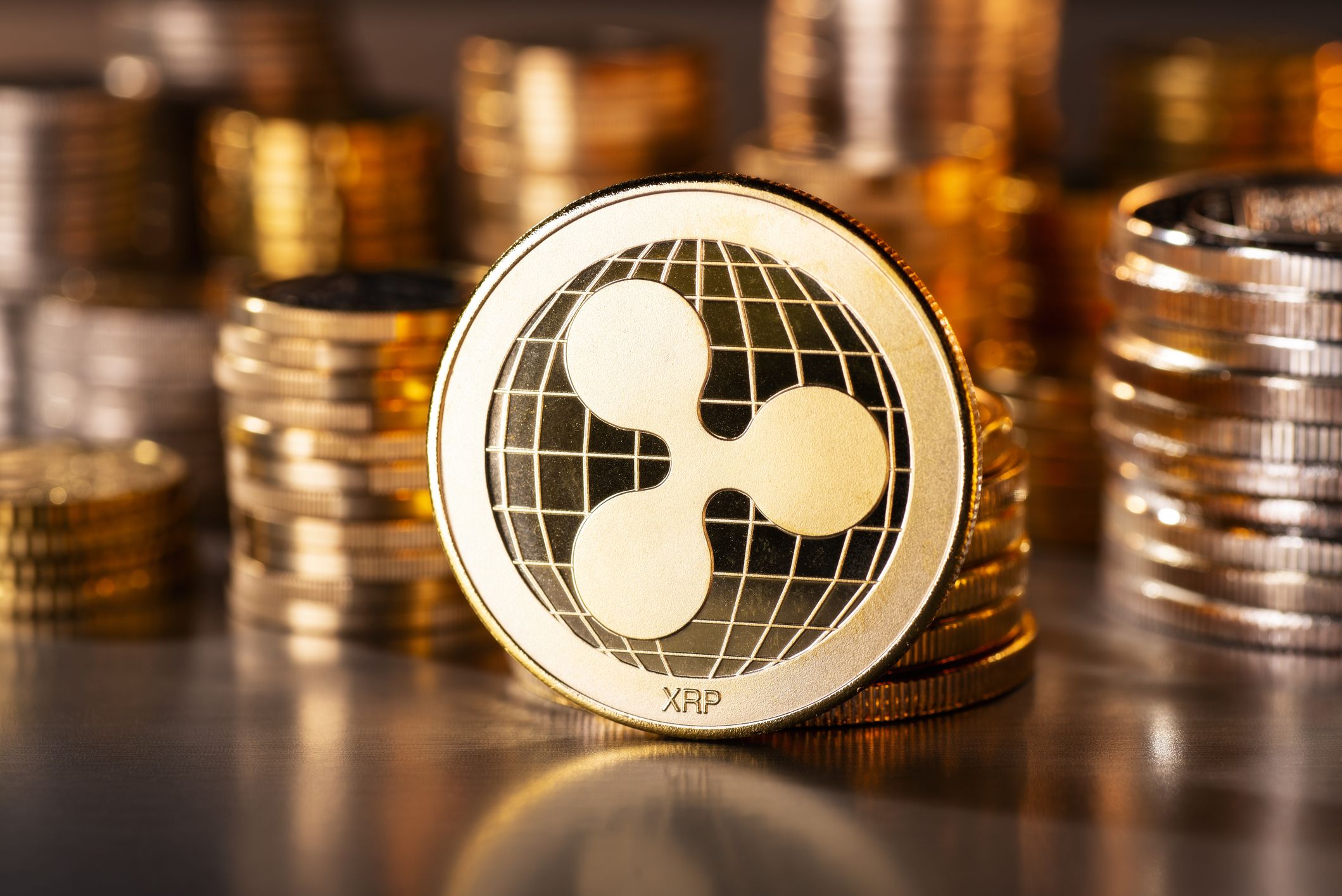What is ripple?

Ripple is both a platform used for the peer-to-peer transfer of currencies (RippleNet), and a digital currency (ripple XRP). The platform itself is an open source protocol, designed to enable fast and cheap transactions between two parties. Any type of currency can be exchanged on the platform, from fiat currencies such as sterling, to cryptocurrencies, to air miles.
The ripple token (XRP) itself can also be used on the platform, and is interchangeable with any currency or digital asset. However, the use of XRP is independent of the ripple network. A party doesn’t actually need XRP to transfer currencies. Therefore, the value of ripple is not in the XRP token, but in the network itself and its ability to transfer assets quickly around the world. The network operates as a competitor to existing payment systems, such as Swift. It can facilitate a variety of transfers across RippleNet, rather than acting as a replacement for existing payment methods or a direct competitor to fiat currencies, as other cryptocurrencies such as bitcoin aim to do.
The idea of ripple was first considered in 2004, but it wasn’t until 2013 that it gathered more traction. Jed McCaleb (a well-known programmer and entrepreneur, and one of the co-founders of ripple) invited a group of investors to invest in the network. Chris Larsen was one of these angel investors, and is considered to be one of the richest people involved in cryptocurrencies.
What is ripple used for?
Banks and individuals are able to use ripple software to exchange assets. Currently, this is done using Swift, a system which relies on banks having separate accounts in all the countries they operate in.
Ripple offers an alternative with some benefits. For example, it could offer low commission currency exchange. At present, there are many currencies that can’t be directly converted to another, so banks need to use US dollars as a mediator. This results in double commission. Ripple could also be used as a mediator currency, but it is much cheaper than USD. It also offers much quicker international transactions than other, similar alternatives. The average transaction time on the ripple platform is four seconds, in comparison to around 10 minutes for bitcoin, or what can be up to a few days for traditional banking systems.
Xcurrent is ripple’s existing service, offering an alternative to what many see as Swift’s archaic messaging system. Xcurrent is aimed specifically at banks and other financial institutions to offer a quicker and more efficient solution to cross-border payments.
A recent innovation constantly linked with various financial institutions and service companies is Xrapid. The price of ripple rallied strongly at the end of September 2018, following rumours of links to this new service. Xrapid works by enabling payment providers and banks to connect different currencies around the world using XRP as a bridge asset, thus processing cross-border transactions faster than ever.
How to trade ripple
When you buy ripple on an exchange, the price of one XRP token is usually quoted against the US dollar (USD). In other words, you are selling USD in order to buy ripple. If the price of ripple rises you will be able to sell for a profit, because it is now worth more USD than when you bought it. If the price falls and you decide to sell, then you would make a loss.
With ALFATRADING-MARKETS, you trade ripple via a spread bet or CFD account. This allows you to speculate on its price movements without owning the actual cryptocurrency. You aren’t taking ownership of ripple. Instead, you’re opening a position which will increase or decrease in value depending on ripple’s price movement against the dollar.
Spread betting and CFDs are leveraged products. This means you only need to deposit a percentage of the full value of a trade in order to open a position. You won’t have to tie up all your capital in one go by buying ripple outright, but can instead use an initial deposit to get exposure to larger amounts. While leveraged trading allows you to magnify your returns, losses will also be magnified as they are based on the full value of the position.
What’s the difference between ripple and bitcoin?
There are several differences between ripple and bitcoin, including:
- Technology: bitcoin is based on blockchain technology, where a public record of verified transactions is recorded. Ripple on the other hand, does not use blockchain technology, but instead uses its own technology known as the ripple protocol consensus algorithm (RPCA).
- Mining: miners are used to verify bitcoin transactions, and also to issue new bitcoins into the network. Instead of mining, ripple uses a unique distributed consensus mechanism through a network of servers to validate transactions, and all of its XRP tokens are pre-mined.
- Transaction times: ripple is able to handle 1,500 transactions per second, and scale up to 50,000 transactions per second, similar to Visa for example. Comparatively, bitcoin only has a transaction speed of three to six transactions per second.
- Supply: Bitcoin has a total supply of 21 million coins, whereas ripple has 100 billion pre-mined tokens.
Does ripple use blockchain technology?
Ripple, unlike bitcoin, does not use blockchain technology. Bitcoin transactions are validated by miners, and then added to the existing blockchain. Ripple also uses validating servers and a consensus mechanism, but via its own patented technology, the ripple protocol consensus algorithm (RPCA). The word ‘consensus’ in the name refers to the fact that if every node is in agreement with the rest, it will be validated.
Why trade ripple with ALFATRADING-MARKETS?
Open a long or short position*
Spread betting and CFDs allow you to trade on both rising and falling prices. You don’t have to own ripple in order to sell it (go short), something that is not possible on cryptocurrency exchanges.
Efficient use of capital
Leveraged trading means you only deposit a small percentage of the full value of a trade in order to open a position. With mainstream cryptocurrency exchanges you would need to deposit the full value of the contract. Remember that both profits and losses will be magnified, and you could lose more than the amount you deposit to open a position.
No exchange account or wallet
Unlike buying the underlying XRP tokens, there is no need to open an exchange account or wallet to hold the cryptocurrency you have bought. This means no waiting for approval from the exchange, no concerns about keeping your wallet secure, and no fees if you want to withdraw funds later.
Trade with an established provider
ALFATRADING-MARKETS is a regulated provider. We have 29 years’ experience in the industry and also offer support for all our clients whenever the markets are open.
Trade responsibly
Cryptocurrencies are still relatively new for most people and can be extremely volatile. We want our clients to have access to in-depth educational materials to support their trading.
What factors affect ripple’s price?
Ripple’s price is driven by factors such as:
- Regulation: many cryptocurrencies are currently unregulated by governments and central banks. If this changes in the next few years, this could have an impact on the value of ripple.
- Technology: ripple’s underlying technology as a platform for international transactions is what makes it different to other cryptocurrencies. Several large banks have announced testing of ripple’s technology, and this could affect its price in the future.
- Press: positive media interest and coverage of ripple’s technology is likely to have a correlated positive effect on its value.
*Please note we may, at our sole discretion, restrict your ability to go short.
ALFATRADING-MARKETS is an execution-only service provider. The material (whether or not it states any opinions) is for general information purposes only, and does not take into account your personal circumstances or objectives. Nothing in this material is (or should be considered to be) financial, investment or other advice on which reliance should be placed. No opinion given in the material constitutes a recommendation by ALFATRADING-MARKETS or the author that any particular investment, security, transaction or investment strategy is suitable for any specific person.



